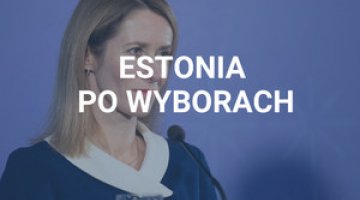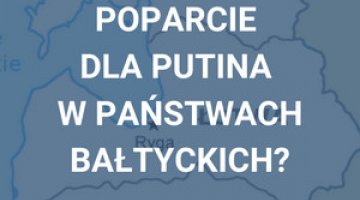Estonia: Kaja Kallas’s third government
On 12 April, the Estonian parliament gave Kaja Kallas a mandate to form a government. This will be the third cabinet to be led by the current head of the Reform Party. The new government coalition will also include the liberal Estonia 200 and the Social Democratic (SDE) parties. The Reform Party will hold six ministries and the prime ministership, while its coalition partners will have three ministries each. Estonia 200 was also given the post of speaker of parliament (see Appendix for the full composition of the government). The appointment of the cabinet by President Alar Karis and the swearing-in of ministers before parliament will probably take place next week. In total, the three-party coalition will have 60 seats out of the 101-member Riigikogu.
According to the coalition agreement signed on 10 April, the government plans to carry out a series of reforms in finance, energy, transportation and social affairs. VAT and income tax are to be raised over the next two years, from 20% to 22% in both cases, while the tax-free allowance threshold is to be raised to €700 per month. They also plan to introduce a tax on internal combustion vehicles and make changes to the energy sector. Oil shale mining in the existing pits will be maintained, and the Eesti Energia corporation will be reformed. The government also intends to make energy usage in construction more efficient.
Some of the most important reforms expected will involve the elimination of free regional transportation and a reduction in family allowances, programmes which were only set up last autumn. The liberal Kallas government also plans to introduce as yet unspecified changes to the procedures for presidential and local elections; these are mainly aimed at restricting the right to vote in local elections for Russian and Belarusian citizens who are residents of Estonia. According to the coalition agreement, the family law will also be amended so that same-sex unions will have equal rights. In the area of security, the government plans to speed up work on expanding the military infrastructure at the Nursipalu training ground, and to maintain the country’s defence spending at a level of at least 3% of GDP over the next four years.
Commentary
- The proposals in the coalition agreement do not have the full support of all the coalition partners. For example, the SDE will only agree to the public finance reforms if there are parallel measures to protect the poorest (such as an increase in the lowest wages). The coalition partners are also divided on issues such as the vehicle tax and the changes to election procedures. The most divisive provisions of the agreement between the various parties of the new government have been drawn up in such a way to allow ambiguous interpretations. This represents a kind of consensus between the economically liberal parties (the Reform Party and Estonia 200) and the more socially oriented Social Democrats. This effectively means that some of the plans will have to be renegotiated as they are worked on in parliament.
- The controversial socioeconomic reforms and the lack of unity within the coalition since its formation suggest that the new Kallas government may not remain in power for a full term. The liberal cabinet of Estonia 200, the Reform Party and SDE will probably have to face not only discontent from the public, but also frustration within its own ranks; the latter will be influenced, among other things, by the past disagreements between Prime Minister Kallas and the Social Democrats’ leader Lauri Läänemets. The relative instability of Estonian politics will also contribute; the country has been governed by as many as five different cabinets over the past two terms of parliament (eight years).
- Prime Minister Kallas’s third cabinet intends to pursue a policy of ‘belt-tightening’. The major plans for its first two years of government include many unpopular reforms. These are intended as a response to the country’s economic situation, which has been deteriorating thanks to the crises of recent years: pandemics, war, high energy prices and significant inflation. According to estimates by the Ministry of Finance and the Bank of Estonia, the economy will contract by 1.5% this year, with a budget deficit of €1.7 billion, or 4.3% of GDP. Another problem is the persistently high rate of inflation, which reached 15% in March; the annual increase in food prices has reached as high as 25%. The public will certainly be disappointed by the fact that the plans just revealed were not announced during the election campaign.
- Some of the government’s plans regarding state security may also prove problematic. There is controversy over the project to expand the military infrastructure at Nursipal in south-eastern Estonia. The defence ministry wants to expand the current training ground (3 hectares in size) by up to three times. This will require the displacement of nearby residents from their homes, and will undoubtedly lead to public protests (such as already took place last autumn). The issue arouses such strong emotions that during the run-up to the elections the previous government suspended work on the project and stopped discussing it.
- No significant changes are expected to Estonia’s security or foreign policy. The coalition will continue the projects to modernise the armed forces which are already underway. The plans to purchase equipment, develop multi-layered air defence, expand the army’s artillery capabilities, strengthen its ground forces and increase ammunition stocks will also be maintained. The modernisation will be financed from the funding allocated to defence, which will be raised to 3% of GDP in the next budget. Additional funds are to be set aside for expenses related to hosting NATO forces. A relatively new initiative included in the coalition agreement is the demand to set up a NATO mission focusing on defence, rather than just patrolling the Baltic states’ airspace, as has been the case so far with the Baltic Air Policing mission. There will not be any significant adjustments in foreign policy, despite the change in the post of foreign minister (Urmas Reinsalu of the right-wing Fatherland grouping will be replaced by Margus Tsahkna of Estonia 200; he was himself a member of Fatherland until 2018). Continuity should be expected in Estonia’s policies towards Europe, Ukraine (unequivocal support) and Russia (lobbying to increase pressure on it).
APPENDIX
Table. Composition of Kaja Kallas’s third government (a coalition of the Reform Party, Estonia 200 and the Social Democratic Party)





